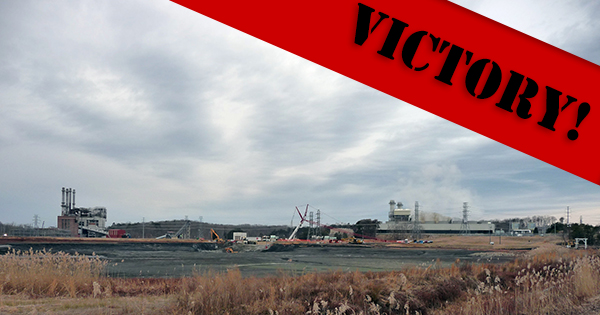“Other Flints,” Part 2: Justice Rolls Down

This past March I contributed an article to “The Pollinator” about a small, rural community in Rutherford County, North Carolina, whose world has been turned upside down. Members of this community are among the 400 families who have been issued “Do Not Drink” orders by the NC Department of Environmental Quality (DEQ) as a result of water contamination by toxins from Duke Energy’s nearby coal ash ponds.
Nearly a year earlier, before I heard of the Cliffside situation, I had moved my own family from our rental home in Arden, NC, because of my growing concerns over the air- and water-borne toxins created by coal ash. When my boys played soccer in our backyard, they were silhouetted by an enormous, volcanic-looking steam cloud produced by Duke Energy’s coal plant on nearby Lake Julian. After we moved, I kept thinking of those parents who didn’t have the option of moving their children away from the plant. Who were simply stuck.
Still haunted by those families, and now the residents of the Cliffside community, whose lives had been devastated by coal ash contamination, I contacted Brooks Berndt, the UCC’s environmental justice minister, and asked if we could collaborate in creating a petition demanding the cleanup of the Cliffside coal ash site, which had been designated “low priority” (or “no cleanup”) by the DEQ. Over the next two weeks the petition was circulated and signed by primarily North Carolina UCC clergy and people of faith. When the deadline was reached, we had far surpassed our hoped-for number of signatures, with over 50 faith leaders and 200 people of faith signed on.
Shortly after I sent the petition to NC governor Pat McCrory, the DEQ, and Duke Energy, I met a local environmental leader for a cup of coffee. I told her about the Cliffside situation and the petition, and my hopes for a reversal of the DEQ’s cleanup stance. She shook her head and said, “You know, that’s not going to do any good. No good at all.”
I responded that she might very well be right—but that I had to believe that people of faith, and faith leaders, have both a responsibility toward those who have suffered injustice, as well as a collective voice that could be used as a powerful tool to influence the course of justice.
One week later, I received a personal letter from Lynn Good, the CEO of Duke Energy. Her note was warm and cordial, although I was disappointed that she did not acknowledge the necessity of the cleanup of Cliffside and Duke’s other North Carolina coal ash sites. Yet, I knew too that if the CEO of the world’s largest utilities was taking the time to write a personal letter in response to our UCC petition, we were having an impact.
And then, one week after the letter’s arrival, it came: the “alleluia/amen” news. The DEQ had reversed its stance! Cliffside, along with other coal ash sites along the Broad and French Broad rivers, were going to be cleaned up. At last.
In my letters to Gov. McCrory, the DEQ, and Duke Energy, I stated that “the eyes of the church are watching now, and looking to see that justice will be done.” I certainly can’t claim that our petition brought about the DEQ’s miraculous reversal, but I do believe that it has played a role in creating a shift in the consciousness, and hopefully, the conscience, of the powers-that-be. I know too that this fight will continue: A possible revision of the state’s coal ash laws could result in reclassifications of the cleanup designations, resulting in cleanup delays or no cleanups at all. And troubling new coal ash concerns arise every day. For instance, in the small, low-income community of Moncure, NC, residents are now embroiled in a battle with Duke Energy over its scheduled removal of 12 tons of coal ash to Moncure from its Cape Fear River site. But here in North Carolina, the UCC will continue to speak for those who have been ignored, and for God’s Creation, and for a new way of being on this beloved Earth.
May justice roll down.
 Karen Richardson Dunn is an ordained minister in the UCC’s Southern Conference, a member of First Congregational Church in Asheville, and an environmental activist. She is currently in the process of creating an environmental justice network among the Southern Conference’s congregations.
Karen Richardson Dunn is an ordained minister in the UCC’s Southern Conference, a member of First Congregational Church in Asheville, and an environmental activist. She is currently in the process of creating an environmental justice network among the Southern Conference’s congregations.
Related News
The Antidote to Power from Above
With its themes of moral reckoning and repentance, this Lenten season brings into stark relief...
Read MoreDon’t Incinerate – Innovate!
Thirty-eight years ago, the United Church of Christ's Commission for Racial Justice released a...
Read MoreThe Racial History of a Church’s Land
In 1859, Oregon joined the Union as the only free state with an exclusion clause in its...
Read More

